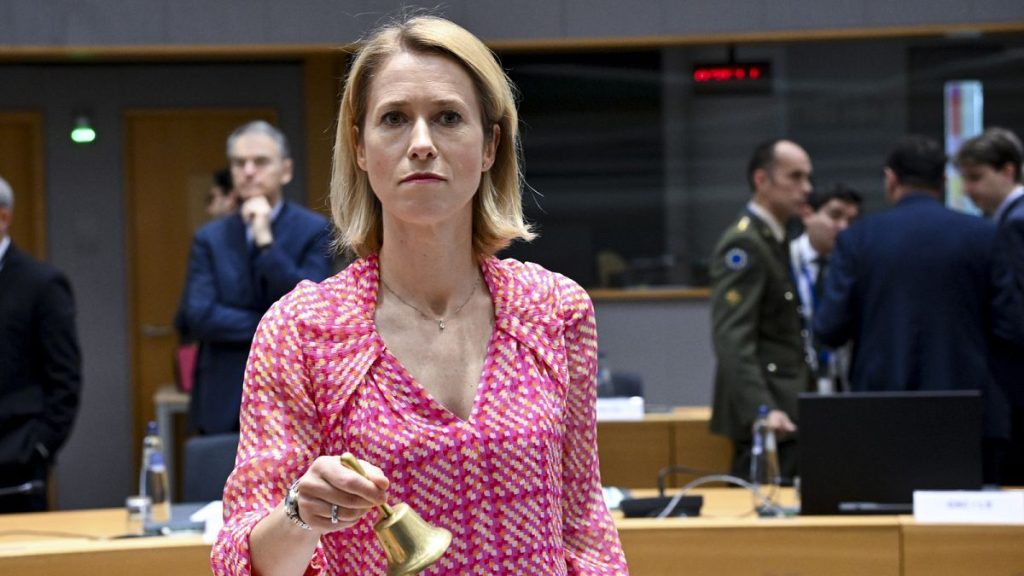The European Union’s escalating scrutiny of its relationship with Israel has reached a critical juncture as a review of the EU-Israel Association Agreement has been initiated. This decision follows the unanimous support from 17 out of 27 foreign ministers within the bloc, urging an assessment of Israel’s adherence to human rights obligations amid its ongoing offensive in Gaza and the recent aid blockade. The review will determine Israel’s compliance with Article 2 of the agreement, which emphasizes human rights and democratic principles as foundational elements in EU-Israel relations.
| Article Subheadings |
|---|
| 1) Context of the Review Decision |
| 2) Implications of Article 2 |
| 3) EU Member States’ Positions |
| 4) Recent Developments in Gaza |
| 5) Broader International Reactions |
Context of the Review Decision
On a recent Tuesday, a pivotal decision was made regarding the EU’s trade and cooperation agreement with Israel. Following a substantial discussion among EU foreign ministers, it became evident that a significant majority supported a review of the longstanding agreement due to increasing concerns about Israel’s military actions in Gaza. The proposal, pushed forward by Dutch foreign minister Caspar Veldkamp, received the backing of 17 ministers from member states, indicating a swell of support that was previously lacking.
“It is clear from today’s discussions that there is a strong majority in favour of a review of Article 2 of our Association Agreement with Israel,”
stated the EU’s High Representative for Foreign Affairs, Kaja Kallas, emphasizing the urgency of the situation.
Implications of Article 2
Article 2 of the EU-Israel Association Agreement plays a crucial role, asserting that trade relations must be governed by respect for human rights and democratic principles. This foundational aspect of the agreement serves as a critical benchmark for assessing whether Israel has violated its obligations under international law. The ongoing evaluation will delve into whether Israel’s recent military operations and the blockade in Gaza contravene these established standards. The findings from this review could substantially affect the diplomatic and trading dynamics between the EU and Israel, as compliance with human rights obligations will have profound implications for future cooperation.
EU Member States’ Positions
The internal dynamics within the EU regarding this issue have been anything but uniform. While countries such as Belgium, France, and Spain have publicly supported the review, other states, including Hungary, have voiced firm opposition. The varying positions reflect deep divisions among member states regarding their respective stances on the Israel-Hamas conflict. Notably, Austrian officials abstained from expressing opposition during critical discussions, signaling a cautious approach in their international dealings. This divergence underscores the complex geopolitical landscape that continues to shape the EU’s role in international diplomacy, particularly in relation to Israel.
Recent Developments in Gaza
The humanitarian crisis in Gaza has become increasingly dire, prompting calls for a reevaluation of Israel’s actions in the region. Specifically, the blockade has restricted aid for over eleven weeks, exacerbating an already volatile situation. However, recent reports indicate that a limited number of aid shipments have begun entering Gaza, a step described as a ‘drop in the ocean’ by Kaja Kallas. The perception of Israel’s humanitarian blockade has led to renewed scrutiny from EU member states, with pressure mounting on Israel to facilitate a more significant influx of aid to beleaguered residents facing extreme shortages of food and medical supplies.
Broader International Reactions
The EU’s decision to examine its relationship with Israel has catalyzed reactions from other international entities. For instance, the UK government recently suspended trade talks with Israel, citing the ‘intolerable’ military offensives in Gaza. This escalated response came after coalition talks among global leaders—including those from France and Canada—who threatened censures if Israeli aggression continued. Such developments signal a potential shift in international sentiment against Israel’s military strategies, further complicating its diplomatic relations not only with the EU but also on a global scale.
| No. | Key Points |
|---|---|
| 1 | The EU has initiated a review of its Association Agreement with Israel based on concerns over human rights violations. |
| 2 | Article 2 of the agreement holds Israel accountable for respecting human rights and democratic principles. |
| 3 | Seventeen of the 27 EU foreign ministers supported the review, highlighting internal divisions on Israel’s actions. |
| 4 | The humanitarian crisis in Gaza continues to worsen due to an extended aid blockade by Israel. |
| 5 | International reactions are escalating, with the UK suspending trade talks and threatening concrete actions against Israel. |
Summary
The EU’s decision to review its Association Agreement with Israel marks a significant shift in its diplomatic approach, driven by mounting humanitarian concerns in Gaza. As member states display diverging views, the impact of this review could redefine EU-Israel relations and send ripples through the broader international community. The necessity for a resolution remains urgent, with calls for immediate humanitarian aid gaining visibility amid growing tensions.
Frequently Asked Questions
Question: What prompted the EU to initiate a review of its agreement with Israel?
The EU decided to review its agreement due to concerns about human rights violations linked to Israel’s ongoing military operations and blockade in Gaza, leading to increased humanitarian crises.
Question: What does Article 2 of the EU-Israel Association Agreement entail?
Article 2 states that relations under the agreement must be grounded in respect for human rights and democratic principles, which are critical elements of the EU’s engagement with Israel.
Question: How have the geopolitical dynamics influenced the EU’s stance on Israel?
Geopolitical dynamics have led to deep divisions within the EU, with differing views among member states based on their national interests and positions on the Israel-Hamas conflict, complicating the EU’s unified diplomatic response.



